Subscribe: Apple Podcasts | Google Podcasts | Spotify | Android | Stitcher | Blubrry | Email | TuneIn | RSS | More
This episode of the Crime Cafe podcast features my interview with crime writer Gareth R.T. Owen.
Check out our discussion about writing for both publication and the screen!
Before I bring on my guest, I’ll just remind you that the Crime Cafe has two eBooks for sale: the nine book box set and the short story anthology. You can find the buy inks for both on my website, debbimack.com under the Crime Cafe link. You can also get a free copy of either book if you become a Patreon supporter. You’ll get that and much more if you support the podcast on Patreon, along with our eternal gratitude for doing so.
Check us out on Patreon: https://www.patreon.com/crimecafe
Debbi (00:54): But first, let me put in a good word for Blubrry podcasting.
I’m a Blubrry affiliate, but that’s not the only reason I’m telling you this. I’ve been using Blubrry Podcasting as my hosting service for my podcast for years and it’s one of the best decisions I ever made. They give great customer service, you’re in complete control of your own podcast, you can run it from your own website, and it just takes a lot of the work out of podcasting for me. I find for that reason that it’s a company that I can get behind 100% and say, “You should try this.” Try Blubrry. It doesn’t require a long-term contract, and it’s just a great company, period. It also has free technical support by email, video, and phone, so you can get a human being there. Isn’t that nice?
If you want to podcast, try out Blubrry. No long-term contract, excellent distribution, and great technical support, too, by email, video, and on the phone. I’ve included an affiliate link on this blog.
Download a copy of the PDF transcript of this episode here.
Debbi (00:54): Hi everyone. My guest today is an award-winning author, screenwriter and filmmaker, originally from Wales, which is a country I have yet to visit, but would love to. He now lives in Los Angeles, where his short films have won festival awards, including best film and best screenplay. He’s worked in feature films, documentaries, commercials and music videos. As a writer, producer, and actor. His debut novel is a gritty psychological thriller. And what better than a screenwriter to create such a book? I’m pleased to have with me today as my guest, Gareth Owen. Hi, Gareth. How are you doing today?
Gareth (01:37): Great, thank you. Thank you very much for having me.
Debbi (01:41): Oh, it’s my pleasure. Believe me. I am just the tiniest bit impressed with your accomplishments. Acting, filmmaking writing. What don’t you do? <laugh>? <Laugh>
Gareth (01:55): Yeah, I’m definitely more comfortable behind the camera and on the creative side, but yeah, I found acting was just a fun way to get on set and meet people. And I think as an actor, you have a lot of downtime. So in between takes when, you know, the crew is setting up the lights and things like that, you have a lot of time to chat to different people, and I was always inquisitive finding out what everybody did and what their roles were. And so for, yeah, you know, building a network acting was great, but I haven’t, haven’t done much stuff in front of the camera for a while. It’s definitely, definitely more comfortable behind.
Debbi (02:34): I can relate to that. Definitely. yeah, and being on set is a very instructive thing, isn’t it?
Gareth (02:41): Oh yeah, absolutely. There’s so many different people doing so many different roles, and it’s very fast paced and yeah, great way to learn is to just be there and see what people are doing. Try not to get anybody’s way, but at the same time ask questions. And yeah, it’s a great learning experience every time I go on set, I thoroughly enjoy it.
Debbi (02:59): That’s fantastic. What did you start off doing? Did you start off with photography or acting or writing?
Gareth (03:09): Writing, yes. Screenwriting. I’m essentially a big movie buff, you know, I love stories of every kind but a huge movie buff. Ever since I was a little kid and we first got kind of cable TV, the film channel there. There was always one film channel and there’s a movie on every night to eight o’clock, and I would always watch the movie every single night, no matter what it was. And it’s great back then, because, you know, whereas now you have Netflix and all these other different, different streaming services, you’ve got a million and one options, then it was whatever movie was on. And so I watched a wide variety of different things. And just afterward fell in love and, and then I got, got really fascinated with, you know, where these stories came from and the structure of screenwriting and, and scripts and just sat down and just tried to do it myself.
(03:56): And, you know, struggled a lot just figuring out, you know, how everything worked and, and self-taught myself when I was younger. And then when I was a little bit older, started taking some classes and, and learning, you know, the real, getting the fundamentals down and so forth. But yeah, definitely writing to start with. There’s not a huge amount of production in Wales. There’s, there’s stuff going on, but it’s a lot harder to get involved with. So as soon as I came to California, I was just reaching out to people and trying to get on set wherever I could.
Debbi (04:29): I guess so.
Gareth (04:30): I think writing, starting out. Yeah. <laugh>
Debbi (04:32): <Laugh> Getting to know people, that’s one of the things that’s really important in that business too.
Gareth (04:38): Absolutely. Yeah, I think in in all businesses really, but specifically, yeah, TV and film and it’s networking is, is probably the, one of the more important things. And I, and I imagine something that almost everyone will say they’re not doing enough of especially since COVID as well has made it more difficult. But yeah, again, and what I’ve found as well is true … contrary to how I thought it might be, everyone in the, you know, the TV and film industry are just such nice people. Not that I expected not to be nice, but I thought it would be more kind of closed door and, you know, kind of difficult to, to get it, get a toe in the door. And it hasn’t, but everyone is extremely nice and such a diverse, different group from different backgrounds, and everyone is very welcoming and happy to, to share information, and that’s been a pleasant surprise.
Debbi (05:32): Yes. That’s something I’ve noticed also. And I think when people, especially authors look at the film industry, they tend to feel more intimidated than they should be by it. Do you, what would you think about that?
Gareth (05:46): Definitely, yeah, a hundred percent. It is, you know, a transition, and I think the main thing is that you know, I don’t think it’s a secret that screenwriters probably aren’t appreciated as much as they should be. You know, without the script, there is no movie, there is no show. But there’s just so many other elements that go into it. And I think the one thing I would advise a novelist that wants to break into the screenwriting world is to really get a good understanding of the other elements that go into a production. You know, especially finances and and budgets, things of that nature. Because that can really make the difference between having, getting your script made and, and not, yeah. You know, you have to keep a pulse on kind of what the market is looking for at the moment and what people are after in terms of what they want to put out and what they think that creative market needs. But yeah, there’s a lot of other aspects, but yes, it’s definitely an industry where you shouldn’t feel intimidated to try and break into. It’s tough, It’s very, very difficult, but likewise, it’s difficult to, you know, write a novel. So it’s a fun challenge.
I don’t think it’s a secret that screenwriters probably aren’t appreciated as much as they should be. You know, without the script, there is no movie, there is no show. But there’s just so many other elements that go into it. And I think the one thing I would advise a novelist that wants to break into the screenwriting world is to really get a good understanding of the other elements that go into a production.
Debbi (06:55): There you go. Exactly. I mean, it’s all a matter of trying things. I think that’s fantastic advice. At what point did you decide to write a thriller novel?
Gareth (07:09): So originally I did write the story as a screenplay. And once I kind of finished the script, I thought there’s just so much more that I wanted to mine in, you know, after the story and the characters. And so I just started basically expanding on the different plot points and the different character development. And almost by accident I kind of stepped back and I was like, “Oh, wow, I’ve got an outline for a novel here.” So I, you know, and so I just committed to, to start writing the novel. And having it really fell into place nicely, and I just thoroughly enjoyed it. I have only written one novel, but I do enjoy writing a novel more than a screenplay, because you can just get into so much more detail and get into the mind of the characters more. And the art of screenwriting is being very, very efficient and yeah, efficient with your words, and with a novel, you just have a lot more creative freedom to, you know, get really into the prose and the mindset of the characters. And I thoroughly enjoyed writing the book. But yeah, originally a screenplay, so I kind of reversed engineered it, whereas usually it’s a novel that becomes a screenplay. This is a screenplay that became a novel.
Debbi (08:20): Which is something that people should think about. <Laugh>. Definitely.
Gareth (08:24): Yeah, absolutely. Yeah.
Debbi (08:27): Let’s see. Tell us about the novel. What is it about? What’s the name and what is it about?
Gareth (08:32): Yeah, so the novel’s called Fragile Creatures, and it is told from multiple points of view. I’m a big lover of the, you know, the Guy Ritchie movies, the Snatch and Lock, Stock, and a few of the other type of movies where the plots interweave. But the main premise is about a hospice nurse named Scarlett, and through one of her patients, she gets thrown into the world of kind of organized crime in the underbelly of Los Angeles. And that was the real inspiration for writing the book, was I wanted to see how this sort of everyday woman, you know, caring medical professional with a, you know, quote-unquote normal life, how she handles being thrown into these situations where she’s being, having to deal with these, you know, criminals and murderers. And it was a fascinating kind of journey to go down. And, you know, this character’s dealing with everyday stuff of cold feet about getting married. She’s unsettled in a job, things that we can all kind of relate to in one way or another. And by the end of the book, she’s dealing with things exponentially more, you know, chaotic and severe. And you know, just seeing that her transformation, that’s what I really drove me to, to write the story.
I’m a big lover of the, you know, the Guy Ritchie movies, the Snatch and Lock, Stock, and a few of the other type of movies where the plots interweave. But the main premise is about a hospice nurse named Scarlett, and through one of her patients, she gets thrown into the world of kind of organized crime in the underbelly of Los Angeles.
Debbi (09:49): Mm-Hmm. <affirmative>. Yeah. Do you tend to think of yourself more as a screenwriter or a novelist now?
Gareth (09:56): So I’d like, like to think of both. I kind of, my kind of handle is like writer and filmmaker. I think that covers a big, big area. I do have two other novels outlined that I want to, I could start writing today, but I am focused more on screenwriting just because of the point that I’m at in my life. You know, I’m in LA, I’m relatively young, <laugh>, I can’t quite say young anymore, but and I’m putting a lot of effort and energy into screenwriting because now is the time for me to do that. You know, I’m in LA. I have my, I’m in different writers’ rooms and things like that. So it, it definitely, the time of my life lends itself more to screenwriting, and I think I can always, and I always will write novels going forward. But yeah, it’s, as I say, I do prefer the novel writing process, but yeah, I’m, I’m hungry to, to keep making content in that world, so.
Debbi (10:58): Excellent. Wonderful. Are your films also crime-oriented, or do you work in different genres?
Gareth (11:05): The shows and movies that I write personally are, yeah, they’re all kind of thrillers. Some lean more to the crime element, some lean more to the drama element. But I work on a lot of other things. You know, I’ve worked on comedies and, and you know, more just pure dramas. I like to work with specific groups of people that I’ve made really strong connections with. I have writing partners, producing partners, things like that. And if they have an idea, I’ll jump on board and try and help them any way I can. But if I sit down at the laptop and start writing something, it’s usually always a thriller that comes to mind. And I definitely focus on that when trying to produce my own stuff.
Debbi (11:57): Mm-Hmm. <affirmative>, I’ve noticed at least I think that authors tend to get kind of pigeonholed into categories or genres. Like somebody might be considered a thriller writer or a suspense writer or a mystery writer, whereas screenwriters tend to be a little less categorized, it seems to me. I mean, I know that there are people who tend to write comedy, but I think they’re also equally capable of writing drama or noir. What are your thoughts on that?
Gareth (12:34): Yeah, absolutely. Especially if you’re a novelist and you’re writing a, you know, you’re known for a series, a specific series you’re putting out, it’s kind of harder then to bring out an individual novel of a completely different type and genre. But yeah, in screenwriting it’s almost celebrated in certain ways. I know in writers’ rooms for shows, for example, even if you’re just writing a comedy show within that room of, you know, 8, 10, 12 people, it’s that you want a diverse group of writers in terms of, you know, there may be eight, someone who specializes in horror in there, and it might sound silly, even though it’s a comedy show, but you don’t just want comedy writers. You want dramatic writers and maybe a thriller writer and all these different areas to really round out the show and give it that, you know, yeah, well thought out kind of feel. But yeah, it’s definitely not limited. I think it all depends on just final output. If you can put it, put out a great script, and it really doesn’t matter, you know, if you’ve been specialized in a certain genre leading up to that.
Debbi (13:43): I think that’s one of the things that really distinguishes that industry in terms of the writing. It’s so collaborative. The writing itself is collaborative and the process of making the product that comes from the writing is also collaborative.
Gareth (13:59): Oh, absolutely. If you bring people in earlier on in the process, then it makes life easier down the road. If I’m looking to produce something and I have producers or directors that I’m working with, I’ll want them to read the earliest drafts of the script and give an idea of, you know, producibility and ways that might be able to increase the chances of being able to raise money to make the movie. And it’s definitely more of a business way of looking at things. And I think, you know, collaboration within a team is one of the fundamental ways to make any business work really. And you do have to put on your business hat. Yeah. That is the difference.
If I’m looking to produce something and I have producers or directors that I’m working with, I’ll want them to read the earliest drafts of the script and give an idea of, you know, producibility and ways that might be able to increase the chances of being able to raise money to make the movie.
Debbi (14:42): So true <laugh>, somebody once told me, it’s like every line you write, you think extra costs <laugh>. Like you don’t wanna add extra costs.
Gareth (14:53): Yeah. Especially if that line is just, you know, a couple people talking in a different country that, you know, we don’t actually have to, you know, do we really wanna fly there to shoot this one little scene?
Debbi (15:06): Yeah. So true. Let’s see. What do you like to read and do you have any authors or screenwriters that you find particularly inspiring?
Gareth (15:16): Oh, Absolutely. Funnily enough, I don’t read that much because I am always on the go, but I am an absolute lover of audiobooks. I burn through, you know, two or three audiobooks a month minimum. So technically I’m reading hundreds of books, you know, but not sitting down type. I wish I had the time to sit down and really read them, but audiobooks are fantastic. I’ve got a big German Shepherd that I walk, you know, many times a day and I’ll be out with my headphones. But my favorite author, Dennis Lehane, was a big impact on my life. When I first started reading his novels, I realized, “Oh wow, I can almost write a novel that is, you know, in the same vein as a screenplay.” And I didn’t know that was a thing. You know, Richard Price was one of his favorite authors. One of Dennis Lehane’s favorite authors, and I’ve gone through his books and similar feeling there. Probably my favorite novel all the time is Galveston by Nic Pizzolatto. It’s his one and only novel. He famously went on to write and create the the show, which I’m completely spaced on the name of them. I can’t believe it.
Funnily enough, I don’t read that much because I am always on the go, but I am an absolute lover of audiobooks. I burn through, you know, two or three audiobooks a month minimum. So technically I’m reading hundreds of books, you know, but not sitting down type.
Debbi (16:26): That wouldn’t be True Detective, would it?
Gareth (16:26): True Detective. Yeah. I can’t believe. It’s one of those favorite shows.
Debbi (16:30): I can’t believe I remembered that.
Gareth (16:31): <Laugh>. Yeah, so true, True Detective. And yeah, his, I wish he wrote more novels, cuz Galveston for me is fantastic.
Debbi (16:39): I love True Detective.
Gareth (16:40): <Laugh>. Yeah, it’s great. It’s in a similar type of vein in, in the style of it. But then in terms of screenwriters there are so many, I really, really, I’ve learned a lot from Alex Garland who’s the writer of Ex Machina. He has an extremely efficient way of writing, and as I said, that is the key to writing a great screenplay is a compelling story that pulls the reader in, but it’s also extremely word efficient. If you can tell, if you can get your point across in 10 words, but you’re using 20, sometimes that will slow the script down, and that’s really not what you want. And he’s the master of that, I think so, yeah. Many different people I take advantage, take inspiration from. Reading screenplays is probably the best way to learn. Any screenwriter are out there, you know, anyone that wants to get into screenwriting, best thing you can do, there’s lots of websites out there. Go on and download some scripts and just read them and you’ll learn a ton. Way more than any class taught me, in all honesty.
Debbi (17:44): Absolutely. I agree with you completely. I have to ask this question, because you’re from Wales. Have you ever been to Portmeirion or is Portmeerion?
Gareth (17:56): <Laugh>? I don’t know. It sounds familiar, but I honestly can’t think off the top of my head.
Debbi (18:05): Well, the reason I ask is I’m a huge Prisoner fan, a fan of The Prisoner, the old show, The Prisoner that took place in Portmeirion or Portmeerion, and I saw this documentary about Patrick McGoohan who made the show, and he, somebody who was talking about it made it sound outright creepy, like, “Oh my God, I’ve got to get out of here.” They went there and they said, “Oh my God, I’ve got to get out of here.” <laugh>
Gareth (18:29): Yeah, well there’s, there’s some really, really, you know, old structures and buildings. I think that the local church just down the road from my house, I think is something like 1800 years old. You know, there’s, yeah, there’s so much history. You go in there’s very spooky.
Debbi (18:48): Yeah, yeah, yeah. I went to the UK many years ago and was just struck by the the history there. Just when I, when I’m, anytime I go to Europe, I’m struck by how old things are <laugh>.
Gareth (19:04): Yeah. I’m a huge history buff. I love, you know, old things. It’s just what’s fascinating to me is the records that they’ve kept, you know, just with the old monarchs and some of the kings and queens and the wars and all, you know, all these different moments in history. The detailed records that have been kept are fascinating. And you can, I love, you know, sinking into those and letting your imagination kind of take you to that era and time period.
Debbi (19:35): It’s very cool. What advice would you give to anyone who would like to write for a living?
Gareth (19:44): It’s, so do you mean in terms of novels or screenwriting? I think it’s kind of very different.
Debbi (19:50): Either. Both.
Gareth (19:50): I think, yeah, I’ll give you a quick one on both. I think novel writing. The key is to really figure out if you are looking to do, you know, self-publish or go through a traditional publishing house. It’s very difficult to do either really. But if you are looking to self-publish, I think it’s a case of building your brand and really researching what that involves because it is a full time job and you really need to be able not only to be, need to be a good writer, but you need to be a good market brand ambassador, and all those other things that go into it. So that’s something to really research. And if you would like to go down through the traditional publishing route, there’s a whole other set of, of criteria you need to familiarize yourself with.
Advice on novel writing: The key is to really figure out if you are looking to do, you know, self-publish or go through a traditional publishing house. It’s very difficult to do either really.
(20:40): So definitely don’t just think of it as being a writer, as there are many other aspects to it. And I would say with screenwriting, you know, I hate to say it and people always say it, and you know, people always ask, is it real? You do have to be in one of the filmmaking cities, and that doesn’t have to be in LA. Actually less and less stuff are actually getting produced in LA, then people move into different states to produce for tax incentives and other reasons. But, you know, Atlanta’s another big one, and you just do need to be in that hub. And that’s because of the reason we discussed earlier, and that’s networking and meeting people and, you know, being a face in a room that you can look at people and pitch your idea and stuff.
Advice on screenwriting: You do have to be in one of the filmmaking cities, and that doesn’t have to be in LA. Actually less and less stuff are actually getting produced in LA, then people move into different states to produce for tax incentives and other reasons. … you just do need to be in that hub. And that’s because of the reason we discussed earlier, and that’s networking and meeting people and, you know, being a face in a room that you can look at people and pitch your idea and stuff.
(21:25): So that’s one big element. And in learning the business side of things. You know, if you’re just a writer, you’re one of many hundreds and thousands of writers with a good script, and there are a lot of good writers with a good script, but if you can learn the business element of it and understand how the money works and who you need to have on your side to get a project made you, you’re just head and shoulders above most of the other people out there who are just sat behind a keyboard writing.
Debbi (21:56): Yes, it’s all true. That’s absolutely true. Is there anything else you’d like to add before we finish up?
Gareth (22:05): No, fantastic questions. It’s been, you know, a pleasure being on the podcast. I really appreciate you having me on. And yeah, if anyone would like to check out my book, Fragile Creatures, it’s on Amazon you know. I’d appreciate anybody who does like it to, you know, leave review on there. That’s kind of how we get their bit of recognition. But yeah, no, just appreciate you having me on.
Debbi (22:28): Oh, well, it’s a pleasure to have you here. And I could talk to you probably for an hour since you’re a movie buff, but we won’t, we won’t do that unfortunately. But, thank you so much again. And to everyone who’s listening, please remember to leave a review for the podcast wherever you listen to them. We are also Patreon-supported and have more to offer to patrons. Check out our Patreon page and see what you think. Thanks for listening, and our next episode in two weeks will feature author Sherry Knowlton. Until then, take care and happy reading.
*****
For access to bonus episodes and more, consider becoming a paid subscriber!





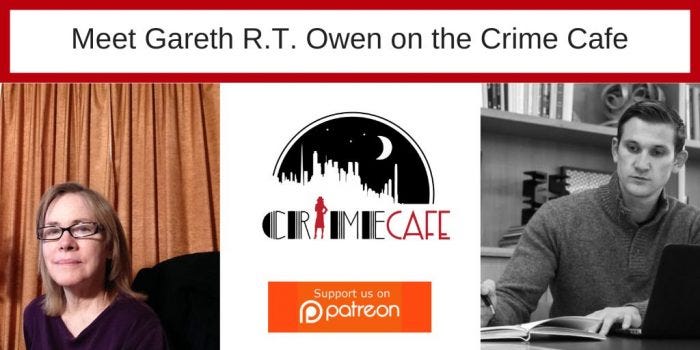

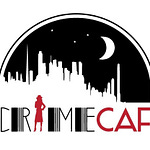
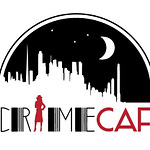
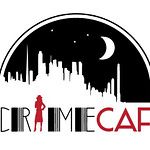
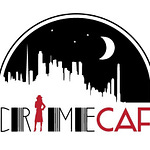

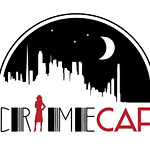


Share this post